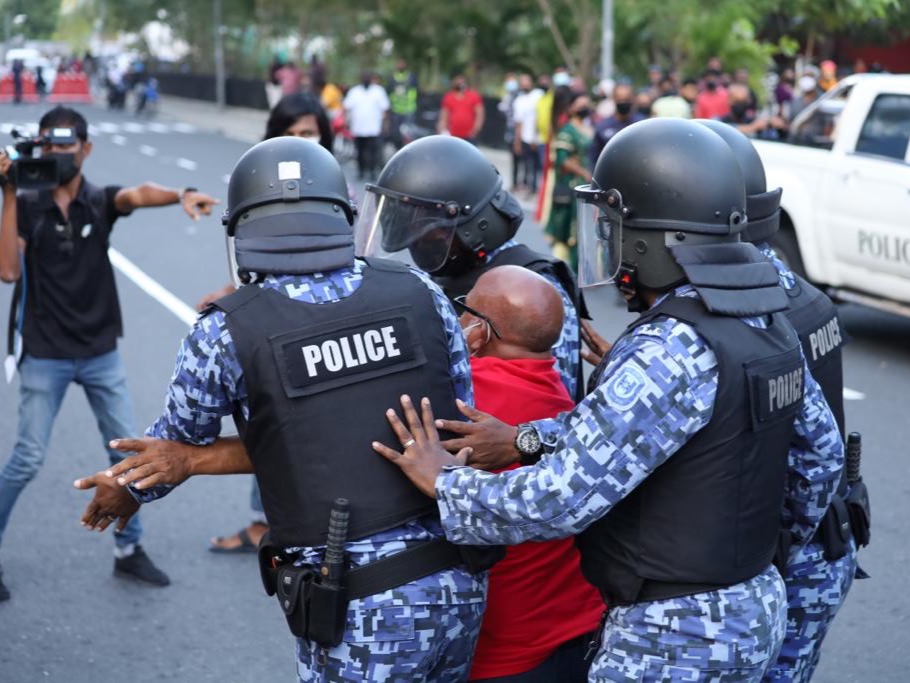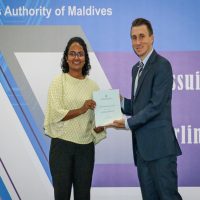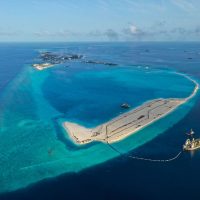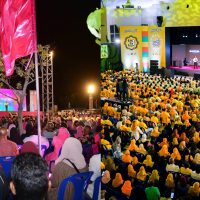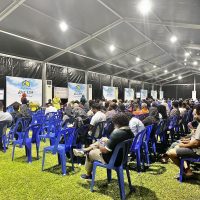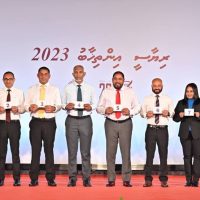1. Protesters Clash With Police
The opposition’s ‘India Out’ campaign escalated with police crackdown’s on daily protests outside the Progressive Party of Maldives office. Several protesters were arrested for disobedience to orders, according to the police, including Malé City’s deputy mayor and a former lawmaker. Most were released after a few hours. Of 29 people arrested on Friday, two protesters – including a woman accused of assaulting a police officer – were held in custody. But both were released when they were taken before a judge in 24 hours.
The PPM condemned the arrests as a violation of the constitutional right to peaceful assembly and accused riot police of using excessive force. But the police insisted that officers acted lawfully and accused protesters of attacking police officers and damaging state property. The police also denied ordering protesters not to wear T-shirts with the ‘India Out’ slogan.
Street protests were effectively banned when the PPM was in power. Controversial legal changes restricted gatherings to areas designated by the home ministry, which picked the carnival area in Malé’s eastern waterfront. Despite repealing other draconian laws passed by the former PPM-majority parliament, the ruling party’s supermajority in parliament has kept the protest restrictions in place.
Why It Matters: After a three-year period of political stability, the protests signal renewed belligerence ahead of the 2023 presidential election. Echoing the criticism it faced in government over Chinese debt, the PPM’s nationalist appeal to protect the country from alleged Indian interference appears to be a key plank of its campaign to return to power.
What’s New: During a tour of Noonu atoll, President Ibrahim Mohamed suggested that the true motive of the ‘India Out’ campaign is to protect lucrative drug trafficking as police have been seizing record hauls of heroin with help from the Indian military, a counterclaim also made by activists and top government officials in recent weeks.
2. Clerics Warn Homestay Threatens Islamic Culture
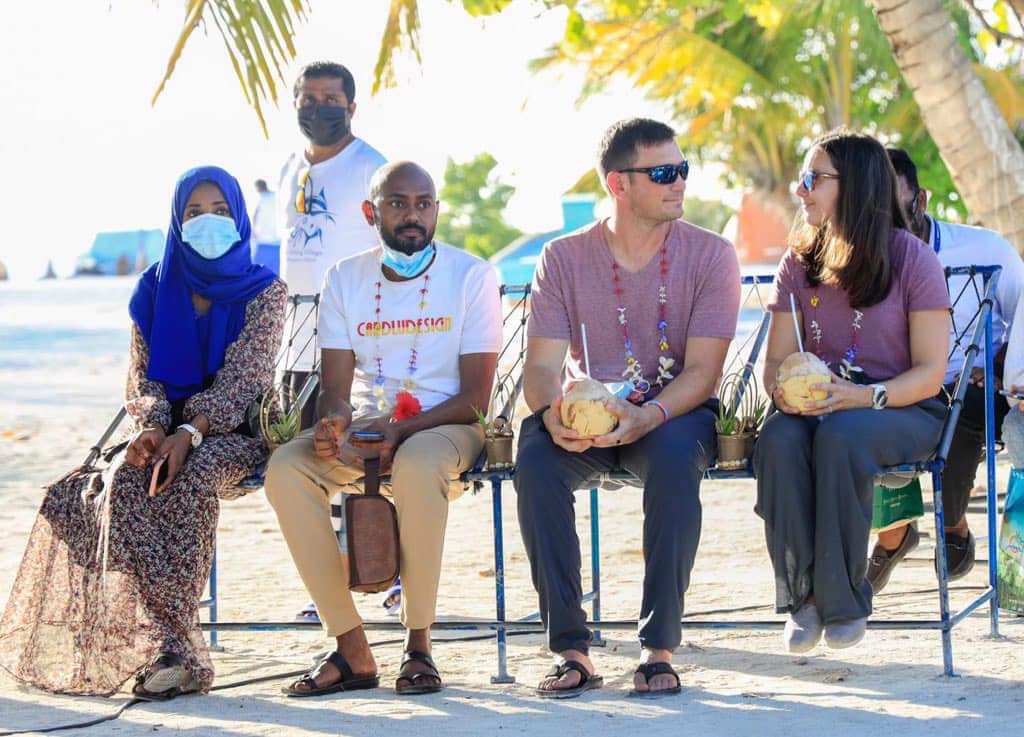
Religious clerics warned that foreigners staying in people’s homes could threaten the country’s Islamic identity as a photo of a tourist in a bikini was widely circulated on social media, sparking debate about the impact of local tourism.
The first homestay guests arrived on the island of Dhiggaru on January 1 after the government relaxed guesthouse regulations. Up to five rooms from a house or apartment can be registered as a homestay guesthouse, opening up the sector to people previously unable to raise the investment or meet regulatory demands.
Religious NGO Salaf warned that homestay would “break up families and cause loss of children’s chastity and good reputation”. A prominent religious scholar declared that it was not permissible to earn income from hosting “naked people” in Muslim homes.
But proponents countered that homestay guests would understand religious sensitivities and respect local customs and traditions. One of the first guests on Dhiggaru praised the hospitality of the islanders and enjoyed learning about their famous Rihaakuru (fish paste).
Tourism Minister Dr Abdulla Mausoom pointed out that tourists have been visiting local islands for the past 12 years. “The change we brought is to provide the opportunity to change homes to guesthouses, whether there’s no restaurant, no reception and no one living there,” he told newspaper Mihaaru. Maldivian resort workers have interacted with non-Muslim tourists for half a century without losing their faith, he stressed.
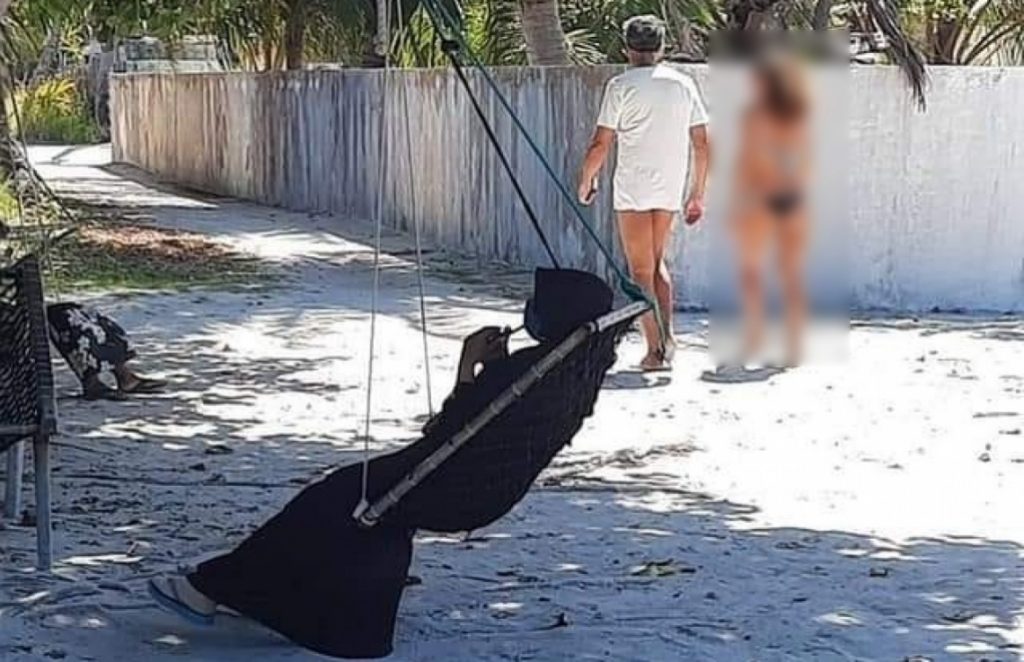
Background: Before former president Mohamed Nasheed’s administration authorised guesthouses on local islands, the ‘one-island, one-resort’ model with high-end properties on private islands fostered exclusivity and kept tourists segregated from local communities, which allowed the sale of alcohol and pork prohibited by Islamic shariah.
Since the first guesthouse opened in Maafushi in 2010 – offering a more affordable island experience – mid-market tourism has boomed with more than 600 guesthouses now in operation across all the atolls. But objections on religious grounds have persisted. Mosts islands have fenced-off “bikini beaches” for tourists and offer trips to sandbanks, yachts and uninhabited islands.



